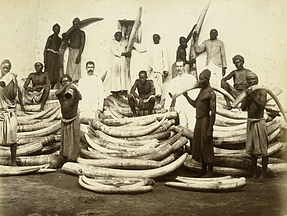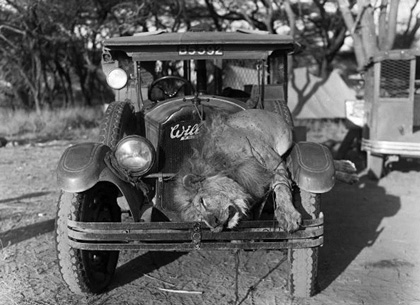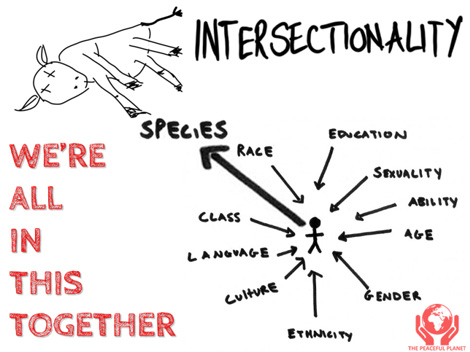African Studies ‘goes animal’

 Harry Wels is an organizational anthropologist by training. His research is about organizational structures of cooperation in the context of nature conservation and touches on and relates to broader issues in animal studies. He has written this blog as the convenor of the Collaborative Research Group Trans-species perspectives on African Studies.
Harry Wels is an organizational anthropologist by training. His research is about organizational structures of cooperation in the context of nature conservation and touches on and relates to broader issues in animal studies. He has written this blog as the convenor of the Collaborative Research Group Trans-species perspectives on African Studies.
Scientific evidence shows: Humans and animals are more alike than different. Almost on a daily base scientists ‘discover’ that humans are not unique in all the things we have brought up over the years to make us think that we are ‘special’ and far ‘better’ than any other animal. But this sense of human superiority is now severely challenged by scientific research, actually to a level that in all honesty we can’t hold on to it.
Animals speak languages
By now it is scientifically proven that other animals also speak languages; other animals also use tools, including fire(!); other animals also have morality and empathy; other animals can also suffer, and like humans, prefer to lead happy lives and feel compassion for each other. Scientific evidence now shows that humans and non-human animals are all part of evolutionary continuity, and because of this continuity they share more than they differ; no critter can consider him- or herself nowadays unique anymore.
Focus on people in African Studies
So far, non-human animals did not feature much in African Studies; African Studies’ genealogy is rather focussed on humans: African Studies is anthropocentric in its approach to Africa. What does the scientific evidence presented above on human and non-human similarities and continuities mean for the discipline of African Studies? Are we going to doubt or ignore it like we do with the overwhelming scientific evidence on climate change? Or is African Studies accepting it and going to take it on board and start to focus less on ‘only people’ and include ‘more animals’ in Africanist research and analysis to articulate and show that African realities and African development are about humans and animals.
Tragedies
Like a proper speciecist your reflex may be to think that African Studies should first ‘solve’ the human tragedies and complexities on the African continent before turning its attention and including non-human animals in its research? But, if you rightfully think it is very unfair and unacceptable that many people on the African continent get marginalised and abused time and again, realise that they are in it together with other species; the waves of emancipation run from slaves, to workers, to women to animals.
Also here humans and animals share more commonalities than differences: Marginalisation is species-blind and processes of marginalisation are interconnected oppressions. If we want to talk ‘inclusive development’ and emancipation for Africa...
...it should also be inclusive for non-human animals.

Animals in colonial history
If African Studies would start to include non-human animals in its studies, what would for instance African colonial history look like through the inclusion and eyes of its animals? No doubt as horrible as for its people, as Europeans not only colonised African people but also its animals. Colonisation for most animals on the African continent only meant death and destruction. White men hunted them for their ivory...
....or just for 'fun'...
...and white men exterminated them for getting rid of diseases like happened with the campaigns against the tsetse fly. Animal histories in colonial history is, just like with humans, not a pretty story to tell.
The death of Cecil the lion
The decolonisation of African states and people did most of the time not hold for African animals. Most African regimes after independence continued the colonial regimes for animals: If they pay they stay; African wildlife is allowed to live or not at the mercy or whims of humans. Hunting continued as a major income for the newly independent African countries, now presented under all kind of euphemisms for killing them for money, like ‘sustainable use’, ‘harvesting’, ‘wildlife mode of production’, or ‘consumptive tourism’. Walter Palmer, the American dentist who shot Cecil the lion, which created such an emotional uproar around the world, would fit perfectly in all these euphemisms.
That is why African Studies has to ‘go animal’: It is about intersectionalities and trans-species social justice in Africa:
The Collaborative Research Group Trans-species perspectives on African Studies will give a workshop during the FMS AFRIKADAG on 14 April from 16.00 - 17.15: Mens en Dier in Afrika Studies (in Dutch). Register for this workshop!
The forthcoming edition of the African Dynamics series deals with conservation in Southern Africa and also touches on the issue of trans-species perspectives on African Studies. It will be published towards the end of 2018.
Credit top photo: Still from the film How honeyguide birds talk to people, BBSRC Media 2016.
This post has been written for the ASCL Africanist Blog. Would you like to stay updated on new blog posts? Subscribe here! Would you like to comment? Please do! The ASCL reserves the right to edit, shorten or reject submitted comments.







